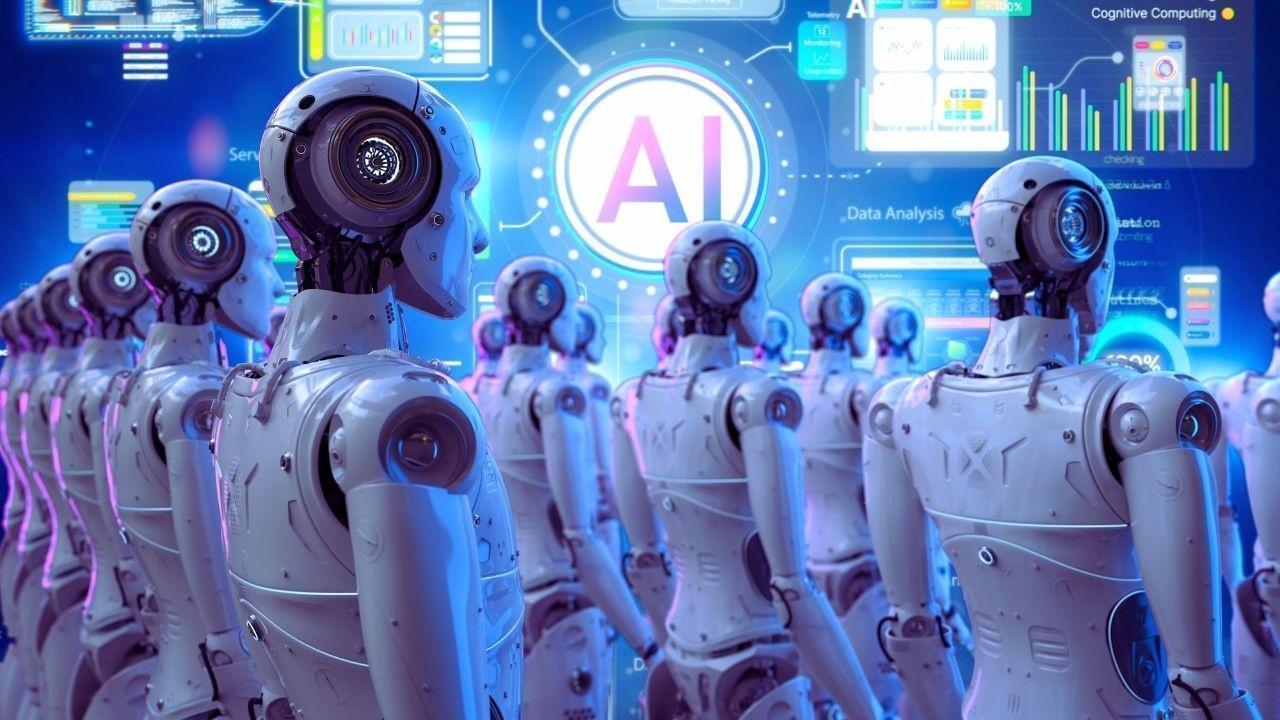You have not yet added any article to your bookmarks!

Join 10k+ people to get notified about new posts, news and tips.
Do not worry we don't spam!

Post by : Anis Farhan
For years, artificial intelligence has partnered with robotics in research, with most innovations remaining in controlled lab environments. Innovative robots managed to navigate limited scenarios and perform specific tasks, but recent advancements are facilitating their movement into real-world applications, where conditions are less predictable.
These autonomous systems are transcending the limits of traditional tools—they now possess capabilities for perception, reasoning, and action. Through learning algorithms, these robots can now interpret their surroundings, make informed decisions, and adjust to unexpected challenges, marking a pivotal point in the development of robotics.
A variety of technological breakthroughs are paving the way for these robots to function outside laboratories:
Cutting-edge AI Algorithms: Advanced methods including deep learning and computer vision allow robots to identify objects, anticipate human actions, and make instant decisions.
Sensor Technology: Integration of lidar, radar, and advanced cameras permits robots to gain three-dimensional insights, recognize barriers, and navigate effectively.
Local Data Processing: By leveraging edge computing, robots can swiftly respond to real-time events without waiting on external servers.
Superior Energy Management: Enhanced battery technology ensures longer operational periods for robots deployed in the field.
These advancements enable robots to perform functions that once required human intervention, leading to reduced errors and improved efficiency.
The realm of industrial automation has been the initial stage for these robots. With the incorporation of AI, they now handle complex manufacturing lines, coordinating with other machines and adapting workflows dynamically.
In the logistics sector, autonomous robots optimize warehouse operations, including inventory management and efficient product transport. Unlike conventional robotic systems, these AI-driven units continually learn, adjusting to variations in products and environments, thus enhancing productivity and minimizing costs.
The healthcare landscape is also witnessing a surge in the use of AI-powered robotic systems. Surgical robots enhance precision during operations, leading to better patient outcomes. Additionally, they assist with routine tasks, managing medication deliveries and patient monitoring.
For elderly care and rehabilitation, these autonomous systems provide mobility assistance and monitor health indicators, making healthcare delivery safer and more tailored, especially in understaffed environments.
Traditionally labor-intensive, agriculture is evolving due to autonomous robots that enable precision farming techniques. AI-equipped machines are programmed to plant seeds, track crop health, and optimize irrigation methods.
By harnessing data for farming, these robotic systems not only increase efficiency but also contribute to sustainable practices.
The development of self-driving cars and delivery drones exemplifies the impressive capabilities of autonomous robotics in diverse environments. These systems utilize AI to operate effectively while adhering to safety protocols.
As these technologies integrate with urban infrastructure, they promise enhanced operational efficiency and decreased traffic congestion, showcasing their potential in daily life.
Despite the progress made, challenges persist in the deployment of autonomous robots:
Complex Environments: These robots must navigate unpredictable factors such as weather and human interactions.
Safety Considerations: Ensuring reliable AI decision-making in critical situations is vital.
Data Needs: Autonomous systems depend on high-quality data for training; inadequate information can lead to errors.
Ethical Issues: Concerns about job displacement, privacy, and accountability are becoming more pronounced.
Tackling these obstacles involves collaboration among engineers, lawmakers, and ethicists, emphasizing the need for responsible development.
In the coming years, we expect remarkable advancements in AI-powered autonomous systems across sectors. Improvements in robotics and human-robot interaction will empower these systems to tackle increasingly complex roles.
As these robots evolve in their tasks and capabilities, connectivity between fleets will enhance overall effectiveness, driving growth in many industries.
As autonomous technologies proliferate, society must consider:
Effects on Employment: Demand will shift towards skills in technology management rather than manual labor.
Regulatory Needs: New laws will be essential to govern these systems and ensure public safety.
Ethics and Transparency: Fairness in AI decisions is crucial for public confidence.
Equity in Access: Ensuring smaller operations can also benefit from robotics is vital.
Understanding these dimensions will aid in maximizing benefits while minimizing risks related to this technological evolution.
Autonomous robotics has graduated from experimental phases to impactful, practical applications. With AI at their core, these systems are transforming industries and profoundly affecting everyday life. The dynamic interplay of perception, intelligence, and motor functions equips these robots to work seamlessly in complex settings.
The challenges ahead, including ethical dilemmas and technical obstacles, cannot be overlooked; nonetheless, the dawn of field-deployed autonomous robots heralds a future of greater collaboration between humans and technology.
This article is for informational purposes only. It summarizes current trends in autonomous robotics and AI, without offering professional, legal, or technical advice. Please consult experts for specific needs.










Study Warns Using AI for Medical Advice Is ‘Dangerous’ as Users Get Inaccurate Health Guidance
A major new study reveals that artificial intelligence (AI) chatbots and tools may give misleading o

Top Sci-Fi Movies Streaming on Netflix This February: Must-Watch Picks for Genre Fans
A curated news-style guide to the best science fiction films currently available on Netflix in Febru

BCCI Central Contracts Shake-Up: Kohli, Rohit Moved to Grade B as Board Reshapes 2025–26 List
Virat Kohli and Rohit Sharma have been placed in Grade B in the BCCI’s 2025–26 central contract list

Dalal Street Spotlight: Top 10 Stocks Investors Are Watching as Markets Open on a High
Indian stock markets begin the week with strong momentum, and several blue-chip and mid-cap stocks a

Market Movers Today: Key Stocks Set To Watch In Indian Markets
Indian equity markets are poised for active trading as several major companies, including Bharti Air

Milan Welcomes the World: Inside the Grand Opening Ceremony of the 2026 Winter Olympics
The 2026 Winter Olympics opening ceremony in Milan marked a defining moment for global sport, blendi